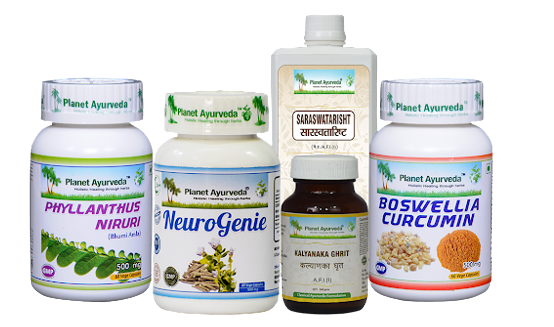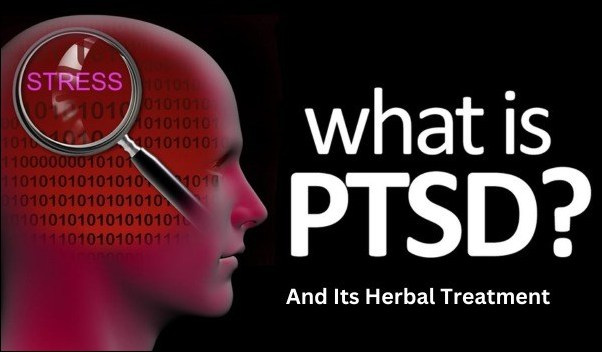Ayurvedic Overview and Treatment for Somatoform
Abstract
Somatoform is a condition of mental disorder associated with unexplained symptoms. It involves various disorders. It is classified into a group of psychic disorders. It experiences that the physical signs and symptoms are nearly related to the stressful life and emotional conflicts. Its incidence occurs mostly in females than males. Usually it is chronic due to being diagnosed late. So today we will read about somatoform disorders in brief in this article.
Introduction
Somatoform is a disorder of mental illness that is distinguished by physical symptoms like fatigue or pain which leads to emotional distress and impaired functioning. It involves various disorders such as somatic symptom disorder, conversion disorder, hypochondriasis, factitious disorder, body dysmorphic disorder, etc. The patient experiences extreme psychological signs and symptoms. People who are suffering from depression and anxiety are more susceptible to somatoform disorders.
Causes
The exact cause is unknown. Other causes are given below
- Genetics
- Learned behavior
- Sexual abuse
- Stress
- Depression or anxiety
- Post traumatic stress disorder (PTSD)
- Child abuse or childhood trauma
- Family influence
- Pain sensitivity increased
- Ignored during child phase
Types along with their symptoms
Conversion disorder
- Pain
- Seizures/tremors/paralysis
- Weakness
- Dysarthria
- Dizziness
- Dysphagia
Hypochondriasis:
- Sleep disturbed
- Spending most of the time searching related signs and symptoms on the internet.
- Consultation with multiple health professionals
- Overthinking of having serious diseases
Somatic symptom disorder
- Breathlessness
- Vomiting
- Nausea
- Disturbed bowel habits
- Fatigue
- Pain in whole body or localized in any fragment of body
- Overthinking
- Events of anxiety attack
- Lightheadedness
Body dysmorphic disorder
- Comparison
- Taking stress about body appearance
- Over conscious especially for face
Factitious disorder
- Short temperament
- Self harming
- Facking symptoms
Malingering
- Not obeys the doctor advise
- Attention seeker
- Falling sick to prevent from work
Diagnose
- Psychological evaluation
- Physical examination
Treatment
- Relaxation therapy
- Supportive psychotherapy
- Family therapy
- Behavior stress management
Ayurvedic overview
In Ayurveda, we can correlate this somatoform disorder with vatagata vyadhi and anubandha of vayu (Association with vata). It can also be closely related with manovikaras. There are three mana dosha:- Satva, Raja and Tama. Vitiation of these three mana dosha leads to somatoform disorders. Vitiation of Vata dosha along with these three gunas (mana dosha) develops symptoms like unexplained pain, visada (Depression), altered gut movements, excessive overthinking, brahma (Confusion), chittodvega (Anxiety), worrying, anxious behaviour, etc.
Samprapti of vata vyadhi
Vata prakopa due to dhatuksaya
Because of intake of katu rasa (Pungent), tikta rasa (Bitter), kasaya (Astringent), dry and light foods, dry vegetables, millet, leads to the ksaya (Decline) of the dhatus (Body tissues), the srotas (Channels) becomes rikta (Vacant) and vata gets imbalanced or vitiated. This can be correlated with the degenerative changes of the nervous system that may cause multiple nervous disorders.
Vata prakopa due to margavarna
Causative factors such as ama (Undigested toxins), vegasandharana (Suppresses natural urge), marmaghata (Injury to vital points), vistambhi (Constipated diet), etc cause margavarana which means the obstruction of the path. Here the obstruction may be complete or partial leading to riktata (Vacant) of the srotas (Channels) beyond the site of obstruction and leads to vata prakopa.
Treatment
Treatment of manovikara given following
Daivavyapashraya chikitsa (Divine or spiritual therapy)
This treatment is done by mantra ucharan (Chanting of mantra), niyama (Practice of healthy habits), mani dharan (Wearing precious stones or auspicious gems), prayashchit (Atonement of bad or evil deeds) and yatragaman (Visiting sacred places of pilgrimage).
Yuktivyapashraya Chikitsa
It is the treatment involves nasya (Medications through nasal passage), takradhara (Pouring medicated buttermilk on forehead), shirodhara (Pouring ghrita, milk, and medicated oil on the forehead), shirolepa (Apply paste on the head), virechana (Purgation), vaman (Emesis), etc.
Other herbal medicine
- Ghrita:- Kalyanaka ghrita, Panchagavya ghrita, Brahmi ghrita
- Arishta:- Ashwagandharishta, Saraswatarishta
- Rasayan:- Kushmanda rasayan, Brahma rasayan
- Vati:- Brahmi vati
- Powders:- Jyotishmati powder, Jatamansi powder, Shankhpushpi powder
Herbal remedies for Somatoform disorder by Planet Ayurveda
Planet ayurveda is a huge manufacturing unit of various herbal remedies for various types of diseases. The company strictly follows all the principles of Ayurveda given in the ancient textbook of Ayurveda Samhita. All the herbal remedies are GMP certified and are safe to consume. All the herbal medications are free from chemical, additives, yeast and other preservatives and have no side effects. Herbs which are used to prepare medications are high in efficacy, pure, natural and all the preparations are 100% vegetarian. Planet Ayurveda provide herbal remedies for somatoform disorder which are given below
Products List
- Neurogenie capsules
- Boswellia + Curcumin capsules
- Phyllanthus niruri capsules
- Kalyanaka ghrit
- Saraswatarisht
Products Description
1. Neurogenie capsules
This capsule is a polyherbal containing brahmi (Bacopa monnieri), and ashwagandha (Withania somnifera). It is sweet, astringent and bitter in taste. It is slightly hot and light in effect. It is a pacifier of all the three doshas– vata, pitta and kapha dosha. It possesses various antioxidants and enhances learning power, memory and concentration. It binds the brain to bring cognitive functions and intellectual pursuits. It is a tranquilizer, a muscle relaxant, an antipyretic, an anticonvulsant, carminative, digestive and a good blood detoxifier. It is a choice of medication for vitiated vata dosha that governs the nervous system. It has salutary effects in depression, insomnia, hypertension, anxiety, insanity, hysteria and mental retardation. It is beneficial in all types of epilepsy. It is indicated in splenomegaly, asthma, senile debility, skin diseases and ulcers.
Does:- 2 Capsules twice daily
2. Boswellia + Curcumin capsules
It is a polyherbal capsule containing shallaki (Boswellia serrata) and haridra (Curcuma longa). This medicine is pungent and bitter in taste. Its effect is dry, hot and light. It contains volatile oils, protein, vitamin A, carbohydrates and minerals. It is a known anti bacterial, anti-allergic, diuretic and antioxidant medicine. It alleviates kapha dosha and vata dosha. It acts as digestive, astringent, anti-diabetic and helpful in blood formation. It is used for skin also. It is indicated for pimples, acne, blemishes, burns and liver diseases. It is a natural antibiotic and applied on bruises and cuts. It is used in chronic pruritus and urticaria.
Dose:- 1 Capsule twice daily
3. Phyllanthus niruri capsules
It is a single herbal capsule containing bhumiamla(Phyllanthus niruri). It pacifies vitiated pitta and kapha dosha. It has analgesic, digestive, carminative, hepatoprotective and antispasmodic properties. It is used in hepatitis, skin disorders, hypertension, diabetes and anemia.
Dose :- 1 Capsule twice daily
4. Kalyanaka ghrit
It is described in the ancient textbook of Ayurveda which contain amalaki (Emblica officinalis), haritaki (Terminalia chebula), bibhitaki (Terminalia bellirica), devadaru (Cedrus deodara), manjishtha (Rubia cordifolia), etc. It is astringent, antiseptic, carminative, digestive and an hemostatic agent. It improves the complexion, intelligence, memory, appetizer, a booster of hematopoietic system, a blood detoxifier and purifier. It is bitter, astringent and sweet in taste and dry, hot and heavy in effect but it is a pacifier of all the three dosha- vata, pitta and kapha dosha. It has anti-inflammatory properties and uterine stimulant properties.
It is a medication used to manage the raised uric acid and gouty arthritis, glandular swellings and recurrent skin infections. It is indicated in uterine and urinary infections, dysentery, chronic fever and diarrhea. It helps to gain lusture, smooth, glowing skin and aids to remove discoloration, freckles and pimples free skin. It promotes the healing of skin tissues damaged by infection or injury.
Dose:- 1 Tsp twice daily with milk or warm water
5. Araswatarisht
It is described in ancient textbook of Ayurveda which containing brahmi (Bacopa monnieri), shatavari (Asparagus racemosus), haritaki (Terminalia chebula), adrak (Zingiber officinale), etc. It is katu (Pungent) and tikta (Bitter) in taste and light, hot and unctuous in effect. While pacifying vata and kapha dosha but aggravating pitta dosha. It is a digestive, producing saliva, carminative, diuretic, demulcent and anti-colic. It is a good cardiac stimulant, aphrodisiac and anti rheumatic properties. It helps to nullify toxins produced in the body due to improper digestion. It is very good for controlling the mucus coming with stool. It increases perspiration and stimulates the circulatory system. It relieves congestion and sinusitis. It maintains the hormonal balance and helps in maintaining normal pregnancy. It reduces the general debility in the body. It improves learning capability, memory and concentration power.
Dosage:- 2 Tsp twice daily
Contact Planet Ayurveda Support Team to provide you the costing / ordering and delivery information at – costing.planetayurveda@gmail.com or Call at 0172-521-4040 (India), +91-172-521-4040 (Outside India) or Whatsapp at (+91) 9915-593-604
Conclusion
In this article, we read about different types of somatoform disorder which is related to mental illness. In Ayurveda we relate this disease with vitiated vata dosha, association of vata and manovikaras. We can manage this disease by various herbal medicines like brahmi ghrita, saraswatarisht, kalyanaka ghrita, brahmi vati, Neurogenie capsules, etc. In other, we can advise the patient to do meditation, yoga, chanting mantra, etc regularly to keep the mind calm.






